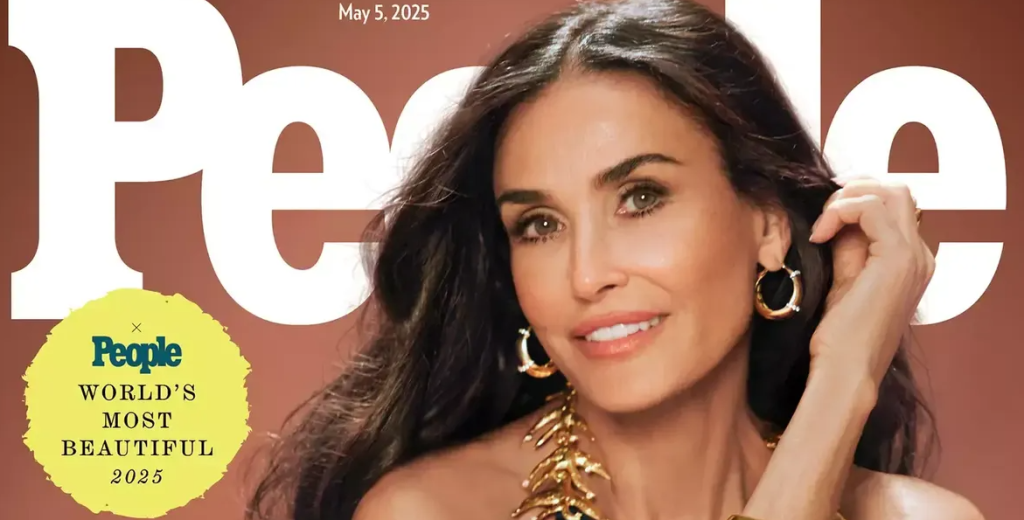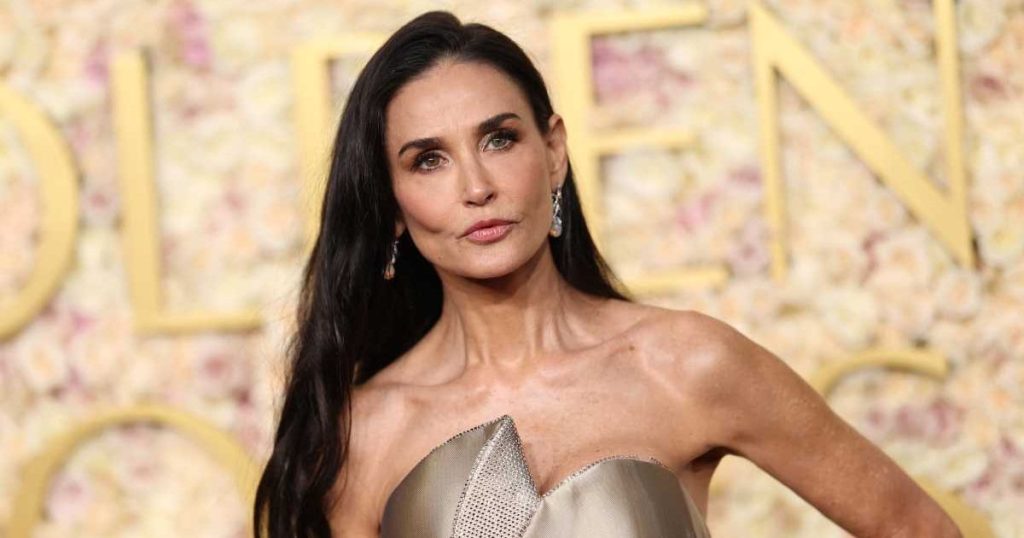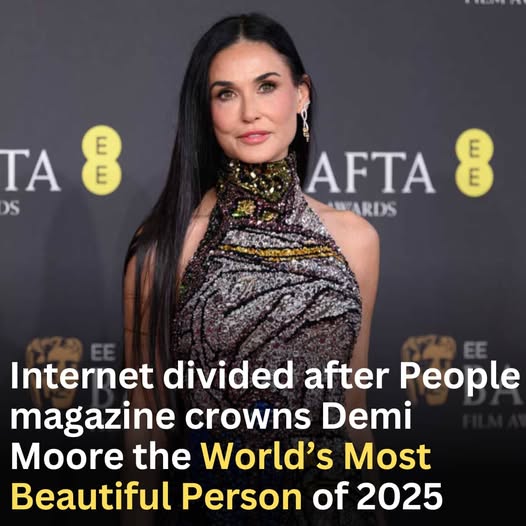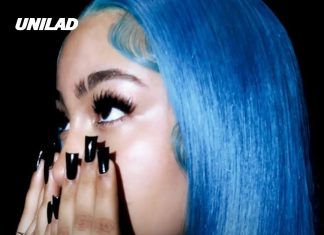In April 2025, People magazine named Demi Moore, at 62, as the “World’s Most Beautiful Person,” sparking widespread discussion about beauty standards, aging, and authenticity in the public eye. The announcement, while celebrated by many, also ignited debates regarding the evolving definitions of beauty and the pressures faced by women, especially in Hollywood.

A Celebrated Career and Recent Resurgence
Demi Moore’s illustrious career spans decades, with iconic roles in films like Ghost, G.I. Jane, and Striptease. After a period away from the spotlight, Moore made a notable return with her performance in the 2024 film The Substance. The role earned her critical acclaim, including a Golden Globe and a Screen Actors Guild Award, and marked a significant milestone in her acting journey. In interviews, Moore expressed a renewed sense of self-worth, stating, “Know the value of your worth” during her Golden Globe acceptance speech.
Embracing Aging and Redefining Beauty
In her candid conversation with People magazine, Moore reflected on her evolving relationship with her body and self-image. She acknowledged past struggles with body image and the extreme measures she took to maintain a certain appearance, including intense workouts and strict diets. However, she now embraces a more intuitive and compassionate approach to wellness, focusing on overall health and longevity. Moore shared, “I have a greater appreciation for all that my body has been through that brought me to now.”
Her perspective on beauty has also transformed. Moore believes that beauty emanates from authenticity and self-acceptance, stating, “Beauty comes out of comfort with being exactly who you are.”
Public Reaction: Praise and Critique
The decision to honor Moore as the “World’s Most Beautiful Person” elicited mixed reactions. Many applauded the choice, viewing it as a progressive move that challenges ageist beauty norms and celebrates the grace of aging. Supporters highlighted Moore’s openness about her journey and her efforts to redefine beauty standards.
Conversely, some critics questioned the selection, pointing to Moore’s seemingly ageless appearance and speculating about possible cosmetic enhancements. They argued that such portrayals might perpetuate unrealistic beauty ideals, particularly for older women. Writer Ulrika Jonsson expressed concern that Moore’s youthful look could set a challenging precedent for natural aging.
Family and Industry Support
Moore’s family, including her daughters Rumer, Scout, and Tallulah Willis, expressed pride and admiration for her recognition. Rumer shared the magazine cover on social media, celebrating her mother’s achievement. Additionally, Emma Heming Willis, Moore’s friend and the current wife of Bruce Willis, praised Moore’s inner and outer beauty.

Industry peers also commended Moore’s accomplishment. Actress Gwendoline Christie and others lauded her for challenging conventional beauty standards and inspiring confidence in embracing one’s age.
A Broader Conversation on Beauty and Aging
Moore’s recognition by People magazine contributes to a larger dialogue about beauty, aging, and societal expectations. Her journey underscores the importance of self-acceptance and challenges the notion that beauty is confined to youth. By sharing her experiences and embracing her age, Moore encourages a more inclusive and authentic understanding of beauty.
As conversations about representation and diversity continue, Moore’s story serves as a reminder of the evolving definitions of beauty and the value of embracing oneself at every stage of life.

















